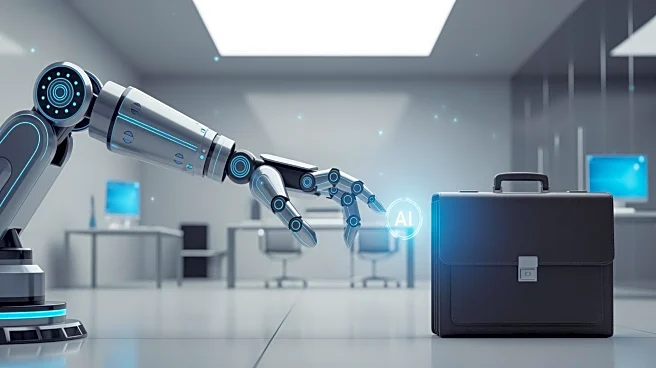What's Happening?
The integration of AI into various industries is raising concerns about job displacement in the U.S. workforce. Companies like Amazon and Salesforce have announced layoffs linked to AI implementation,
while Federal Reserve Chair Jerome Powell acknowledges the trend's impact on hiring practices. Although AI is reshaping industries, a Yale Budget Lab study suggests that widespread technological impacts are typically felt over decades. Industries most at risk include wholesale trade, retail trade, and finance, while sectors requiring human judgment, such as government and agriculture, are less likely to be affected.
Why It's Important?
AI's growing presence in the workforce could lead to significant changes in employment patterns, with potential job losses in sectors heavily reliant on technological skills. However, AI also presents opportunities for job creation, particularly if companies adopt pro-worker AI that complements human roles. Policymakers and employers must address the need for retraining and skill development to ensure a smooth transition and mitigate the risk of permanent job displacement.
What's Next?
As AI continues to evolve, companies and policymakers must focus on retraining programs to equip workers with the skills needed for new roles. The adoption of AI in industries will require strategic planning to balance automation with job creation, ensuring that the workforce adapts to technological advancements. The future of work will depend on how organizations leverage AI to enhance productivity while maintaining employment opportunities.
Beyond the Headlines
The ethical implications of AI-driven job displacement highlight the need for responsible AI adoption that prioritizes human welfare. Companies must consider the long-term impact of AI on workforce dynamics and strive to create inclusive environments that support employee growth and development.










